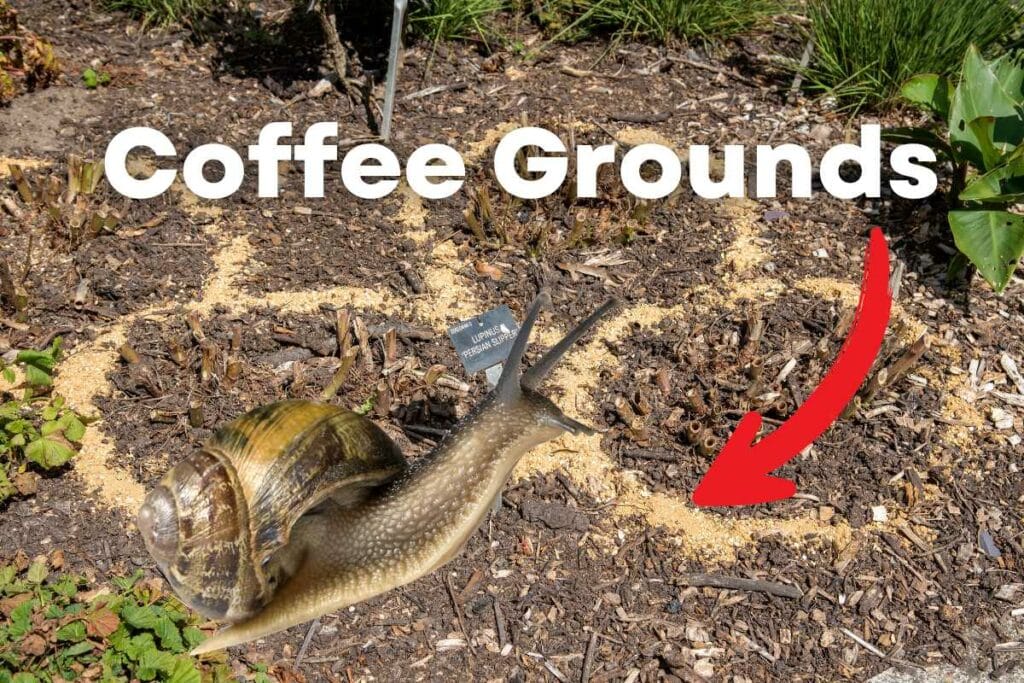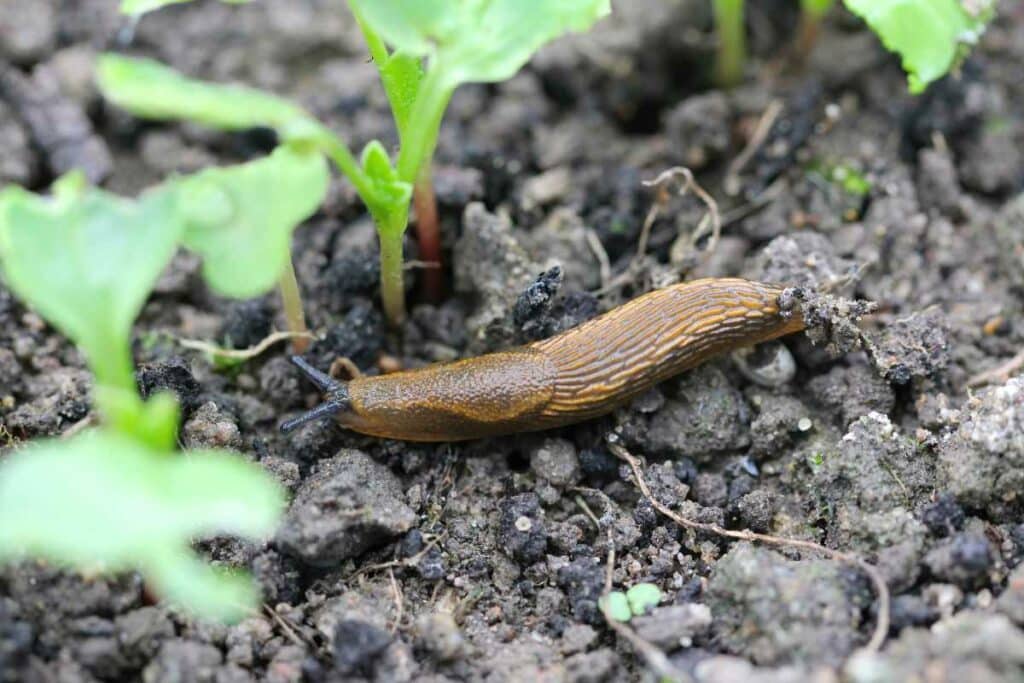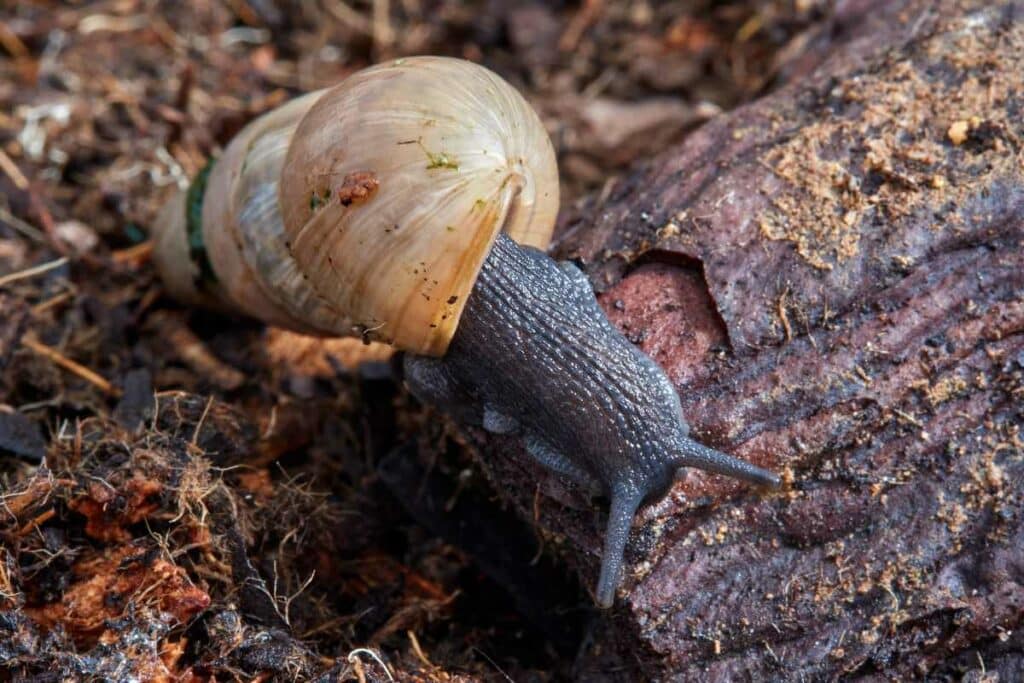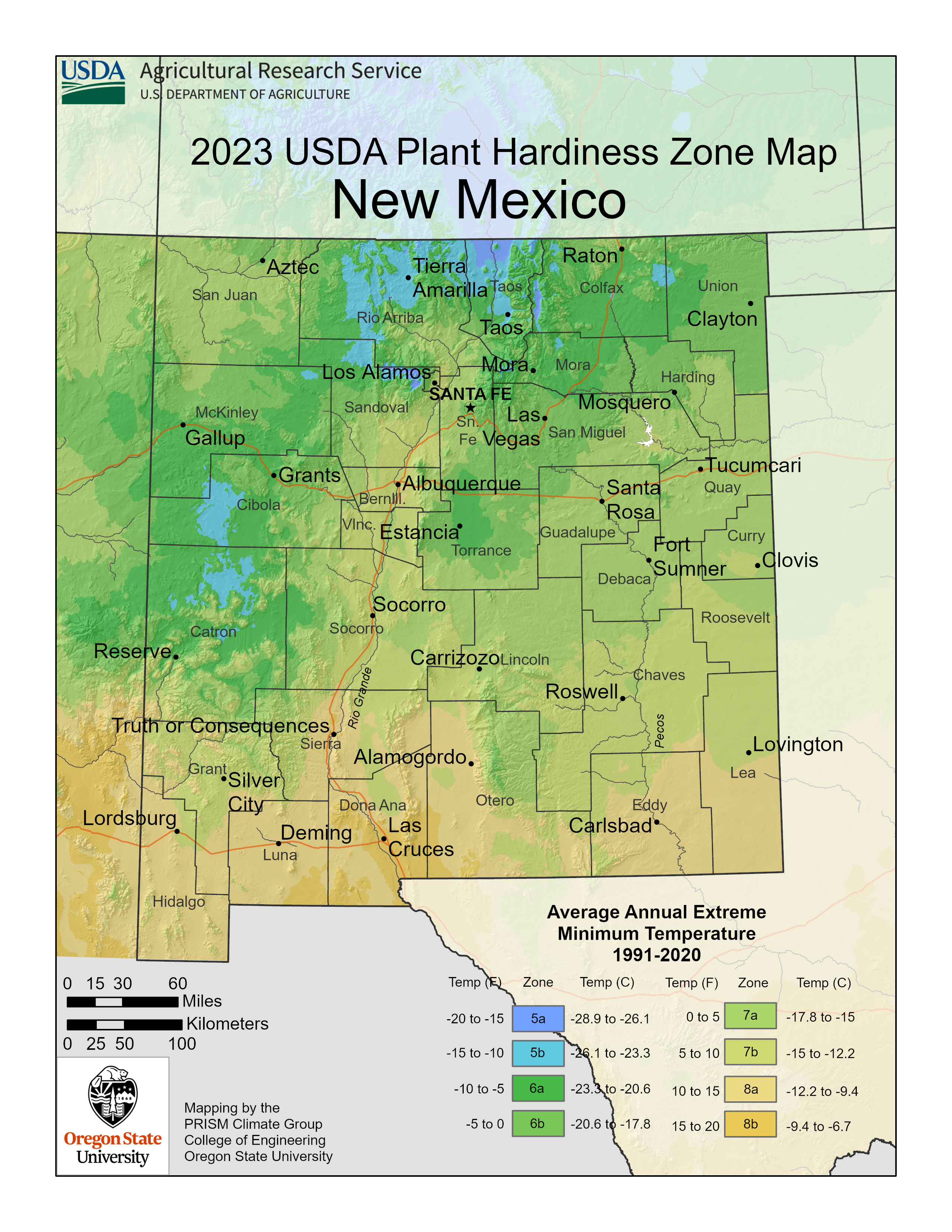
If snails are attacking your plants or vegetable patch. Then you may be looking for a natural way to keep them away or even kill them.
These slimy creatures are notorious for eating away at our precious flowers, fruits, and vegetables. Like many others, I have searched for ways to protect my garden from snails without turning to harsh chemicals.
Fortunately, I’ve discovered that there are several homemade snail killers that are not only effective, but also safe for the environment and our plants.
These natural remedies offer an affordable and eco-friendly solution to protecting our garden from these voracious creatures.
So, without further ado, let me share with you some of the best homemade snail killers I have come across.
Why Homemade Snail Killers?
As a gardener, I always look for ways to protect my plants while keeping the environment safe. I’ve found that homemade snail killers offer a more natural and environmentally friendly option for controlling these pests.
By using homemade solutions, I can ensure my garden remains free from harmful chemicals that can damage soil, beneficial insects, and even my own health.
Moreover, making my own snail killer allows me to save money on commercial pesticides. I love finding low-cost, DIY alternatives to store-bought products, and homemade snail killers are definitely a cost-effective solution.

Plus, many of the ingredients used in these methods can easily be found in my kitchen, making it practical and convenient.
Another great advantage of using homemade snail killers is that they are safe for pets and children. I always worry about using hazardous chemicals around my family, but with natural remedies like vinegar, coffee, or beer, I can have peace of mind knowing my loved ones and pets are safe from harm.
My preference for homemade snail killers comes from the variety of methods available, each targeting snails in different ways.
For example, I can use beer traps to lure snails, apply garlic spray to repel them or sprinkle crushed eggshells around my plants as a deterrent. This flexibility allows me to experiment with different techniques and find the most effective solution for my garden.
Using homemade snail killers also helps me play an active role in preserving and maintaining air quality. Instead of relying on chemical pesticides that can contribute to air pollution, I choose natural alternatives that have a lower impact on the environment.
Eco-Friendly Homemade Snail Killers
As someone who loves gardening, I’m always on the lookout for eco-friendly solutions to common problems. One issue that frequently arises is the presence of snails and slugs in the garden.
In this section, I’ll share some of my favorite homemade snail killers that are both effective and kind to the environment.
Beer Traps
I’ve found beer traps to be one of the easiest and most effective solutions for getting rid of snails. Just grab a small container, like a plastic cup or a deep plate, and bury it halfway in the ground.
Next, fill it with beer — they can’t resist the smell. Due to the sides of the container, the snails will eventually get trapped in the beer and drown.
This method is great because it utilizes a common household item and is safe for the environment. Just remember to clean out the trap regularly and refill it with fresh beer.
Diatomaceous Earth
Diatomaceous earth is a fantastic eco-friendly option for battling snails and slugs. Made from the fossilized remains of tiny aquatic organisms called diatoms, it acts as a natural abrasive.
Sprinkle diatomaceous earth around the garden, creating a barrier around the plants you want to protect. When snails or slugs come into contact with the powder, it damages their slimy coating, ultimately resulting in dehydration and death.
Be aware, though, that diatomaceous earth can be harmful to helpful insects, so use it sparingly and cautiously.
Eggshells
Another method I like is using crushed eggshells as a natural snail repellent. Not only is this a great way to reuse kitchen waste, but it’s also effective and safe for the environment.
After you’ve crushed the eggshells, sprinkle them around your plants to create a sharp barrier that snails won’t want to cross. The eggshells will not only deter snails and slugs but will also add valuable nutrients to the soil as they break down.
Coffee Grounds
A surprising but effective method and my favorite for keeping snails at bay is to use coffee grounds. Sprinkle used coffee grounds around your plants, and the caffeine will repel snails and slugs.
The coffee grounds will also help fertilize the soil, providing additional benefits to your garden. To ensure the effectiveness of this method, make sure to replace the grounds every week or so.
This video show a great test to see if slugs travelled over coffee grounds or choose the easier option. 19 times out of 20 they avoided the coffee grounds at all costs.
Chemical-Free Barrier Methods
As someone who enjoys gardening, I understand the importance of protecting my plants from snails and slugs. In this section, let me share with you some chemical-free barrier methods, which include using copper tape and mesh, as well as vaseline and salt.
Copper Tape and Mesh
My personal favorite is using copper materials, as this metal has proven effective in deterring snails and slugs from accessing my precious plants. Why? Because copper creates an electric shock for the gastropods when they come into contact with it.
What I usually do is place a strip of copper tape around the rim of my pots, or attach a piece of copper mesh around the base of my plants. These copper barriers effectively repel snails and slugs, ensuring a pest-free environment for my plants to thrive.
Vaseline and Salt
Another chemical-free barrier method I’ve used is applying vaseline (petroleum jelly) on the edges of my plant pots. Since snails and slugs don’t like the sticky texture of vaseline, this prevents them from climbing into my pots.
When dealing with a mild infestation, I also use salt as a snail killer. A simple trick is sprinkling some salt around the plants. But be cautious: excessive salt use can damage plants. In my experience, pairing salt with vaseline creates an effective double-barrier against snails and slugs.
Protecting my plants from snails and slugs is essential for maintaining their health and beauty, and chemical-free barrier methods are an eco-friendly way to do so. I hope these tips help you create a thriving garden, just like mine!
Natural Predators
As I’ve explored various methods to control snail populations, I’ve discovered that inviting their natural predators into my garden is an effective and eco-friendly approach. Some of the key players in keeping snails at bay include birds and hedgehogs, decollate snails, and nematodes.
Birds and Hedgehogs
Welcoming birds and hedgehogs into my garden has proven helpful in controlling snail populations. These creatures enjoy snails as part of their diet and can significantly reduce the number of pests munching on my plants.
I’ve found that providing shelter, such as birdhouses and hedgehog homes, along with fresh water sources, helps attract these helpful critters to my garden. Additionally, keeping the garden chemical-free ensures a safe environment for them to thrive (Gardening Know How).
Decollate Snails

Another interesting predator I’ve considered for snail control is the decollate snail. These carnivorous snails feed on the smaller, plant-eating snails that damage our gardens.
Introducing decollate snails can be an effective way to naturally reduce the population of garden snails.
However, it’s important to research and ensure you are introducing decollate snails to an environment where they won’t cause problems in terms of plant safety or local ecology.
Nematodes
One lesser known option for controlling snails is the introduction of beneficial nematodes. These microscopic organisms can effectively reduce snail numbers by attacking and killing the eggs and juveniles.
Nematodes are sometimes commercially available and can be added to the soil in moist, shaded areas of the garden where snails are most likely to gather. They pose no threat to plants, animals, or humans, making them an excellent choice for eco-friendly snail control (VerminKill).
In conclusion, using snails’ natural predators to keep their populations in check is not only effective but also safe for both my garden and the surrounding ecosystem. It’s essential to choose the right predator for your specific situation and ensure that you maintain a healthy environment for them to thrive.
Preventive Measures
In this section, I’ll discuss a few preventive measures that can help reduce the need for homemade snail killers. By implementing these practices in your garden, you can reduce the chances of snail and slug infestations.
Clearing Debris
One effective way to prevent snails and slugs from invading your garden is to clear any debris that may provide them with hiding spots.
I personally make sure to remove fallen leaves, excess mulch, and other decaying organic matter. This not only keeps the garden looking neat, but also makes it harder for snails and slugs to find a suitable habitat.
Tips Bulletin suggests using wood pellets to repel slugs, which can be spread around the garden to deter these pests while also helping to keep the area clear of debris.
Proper Watering
I’ve found that proper watering techniques can go a long way in preventing snail and slug issues.
By watering my plants early in the morning, I give the soil time to dry out during the day, making it less hospitable for snails and slugs, which prefer moist environments. It’s also essential to avoid overwatering, as soggy soil can attract these pests.
Choosing Resistant Plant Types
To minimize the likelihood of snail and slug infestations, I opt for plant types that are less susceptible to attack.
For example, plants with thicker leaves or strong scents can be less appealing to these pests. Additionally, incorporating natural snail repellents like coffee grounds or copper tape around the base of susceptible plants can provide an extra layer of protection.
By implementing these preventive measures, I can significantly reduce the number of snails and slugs in my garden, making it less necessary to rely on homemade snail killers.
Remember, the key is to create an environment that’s less attractive to these pests, and maintaining a clean, well-watered, and thoughtfully planted garden can go a long way in achieving that goal.
Conclusion
In my experience, using homemade snail killers has proven to be an effective and eco-friendly way to manage these garden pests.
I’ve tried various methods, such as sprinkling pine needles and creating a vinegar solution, and found them to be quite successful in repelling and killing snails.
I even found that some methods, like the ammonia recipe, not only help eliminate snails but also provided my plants with a nitrogen boost. This, in turn, promoted healthier growth, making my garden more resilient against future infestations.
Overall, I believe that trying out different homemade solutions is a great way to discover what works best for your particular garden situation.
By experimenting with various options, I’ve been able to maintain a thriving and snail-free garden environment while reducing my reliance on potentially harmful chemicals.


